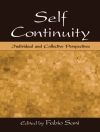Praise for Ethics in Psychotherapy and Counseling, Third
Edition
‘This is absolutely the best text on professional ethics around.
. . . This is a refreshingly open and inviting text that has become
a classic in the field.’
–Derald Wing Sue, professor of psychology, Teachers College,
Columbia University
‘I love this book! And so will therapists, supervisors, and
trainees. In fact, it really should be required reading for every
mental health professional and aspiring professional. . . . And it
is a fun read to boot!’
–Stephen J. Ceci, H. L. Carr Professor of Psychology, Cornell
University
‘Pope and Vasquez have done it again. . . . an indispensable
resource for seasoned professionals and students alike.’
–Beverly Greene, professor of psychology, St. John’s
University
‘[The third edition] focuses on how to think about ethical
dilemmas . . . with empathy for the decision-maker whose best
option may have to be a compromise between different values. If
there is only room on the shelf for one book in the genre, this is
it.’
–Patrick O’Neill, former president, Canadian Psychological
Association
‘This third edition of the classic ethics text provides
invaluable resources and enables readers to engage in critical
thinking in order to make their own decisions.?This superb
reference belongs in every psychology training program’s curriculum
and on every psychologist’s?bookshelf.’
–Lillian Comas-Diaz, 2006 president, APA Division of
Psychologists in Independent Practice
‘Ken Pope and Melba Vasquez are right on target once again in
the third edition, a book that every practicing mental health
professional should read and have in their reference
library.’
–Jeffrey N. Younggren, risk management consultant, American
Psychological Association Insurance Trust
‘Without a doubt, this is the definitive book on ethics within
psychology that can inform students, educators, clinical
researchers, and practitioners.’
–Nadine J. Kaslow, professor, Department of Psychiatry and
Behavioral Science, Emory University School of Medicine
‘This stunningly good book . . . should be on every therapist’s
desk for quick reference.’
–David Barlow, professor of psychology and psychiatry, Boston
University
विषयसूची
List of Tables.
Preface.
1. Helping Without Hurting: Personal Responsibility, Constant
Questioning, and Basic Assumptions.
2. Ethics and Critical Thinking.
3. Trust, Power, and Caring.
4. Competence and the Human Therapist.
5. Creating Strategies for Self-Care.
6. Creating a Professional Will.
7. Codes and Complaints in Context: Historical, Empirical, and
Actuarial, Foundations.
8. Responding to Ethics, Licensing, or Malpractice
Complaints.
9. Steps in Ethical Decision Making.
10. Beginnings and Endings, Absences and Accessibility.
11. Informed Consent and Informed Refusal.
12. Assessment, Testing, and Diagnosis.
13. Sexual Relationships with Clients.
14. Nonsexual Multiple Relationships and Other Boundary
Issues.
15. Culture, Context, and Individual Differences.
16. Confidentiality.
17. Responding to Suicidal Risk.
18. The Supervisory Relationship.
Appendix A. American Psychological Association Ethical
Principles of Psychologists and Code of Conduct.
Appendix B. Canadian Psychological Association Code of Ethics
for Psychologists.
Appendix C. American Psychological Association Committee on
Legal Issue Strategies for Private Practitioners Coping with
Subpoenas or Compelled Testimony for Client Records or Test
Data.
Appendix D. American Psychological Association Statement on
Services by Telephone, Teleconferencing, and Internet.
Appendix E. Patients’ Mental Health Rights.
Appendix F. Ethical Guidelines for Professional Care in a
Managed Care Environment.
Appendix G. Ethics Codes and Practice Guidelines for Assessment,
Therapy, Counseling, and Forensic Practice.
References.
About the Authors.
Name Index.
Subject Index.
लेखक के बारे में
Kenneth S. Pope received his Ph.D. from Yale and is in
independent practice as a licensed psychologist in Connecticut. He
has chaired the Ethics Committees of the American Psychological
Association (APA) and the American Board of Professional Psychology
(ABPP). He is the author of ten books, and has also authored or
co-authored over 100 articles and chapters in peer-reviewed
scientific and professional journals. He has received the APA
Division of Clinical Psychology Award for Distinguished
Professional Contributions to Clinical Psychology and the APA Award
for Distinguished Contributions to Public Service.
Melba J. T. Vasquez received her Ph.D. in counseling
psychology from the University of Texas, and is a psychologist in
private practice in Austin, Texas. She served on the APA Ethics
Committee, the APA Ethics Committee Task Force for Revision of 1992
Ethics Code, and APA Board of Social and Ethical Responsibility.
She has taught graduate courses in ethics, counseling and
psychotherapy, and multicultural issues in psychology. She is past
president of the APA Society for the Psychology of Women and has
won numerous awards including the 2000 Distinguished Leader for
Women in Psychology.












